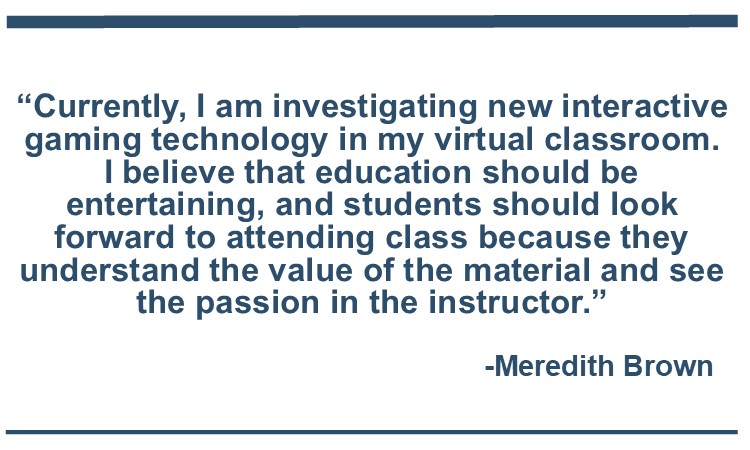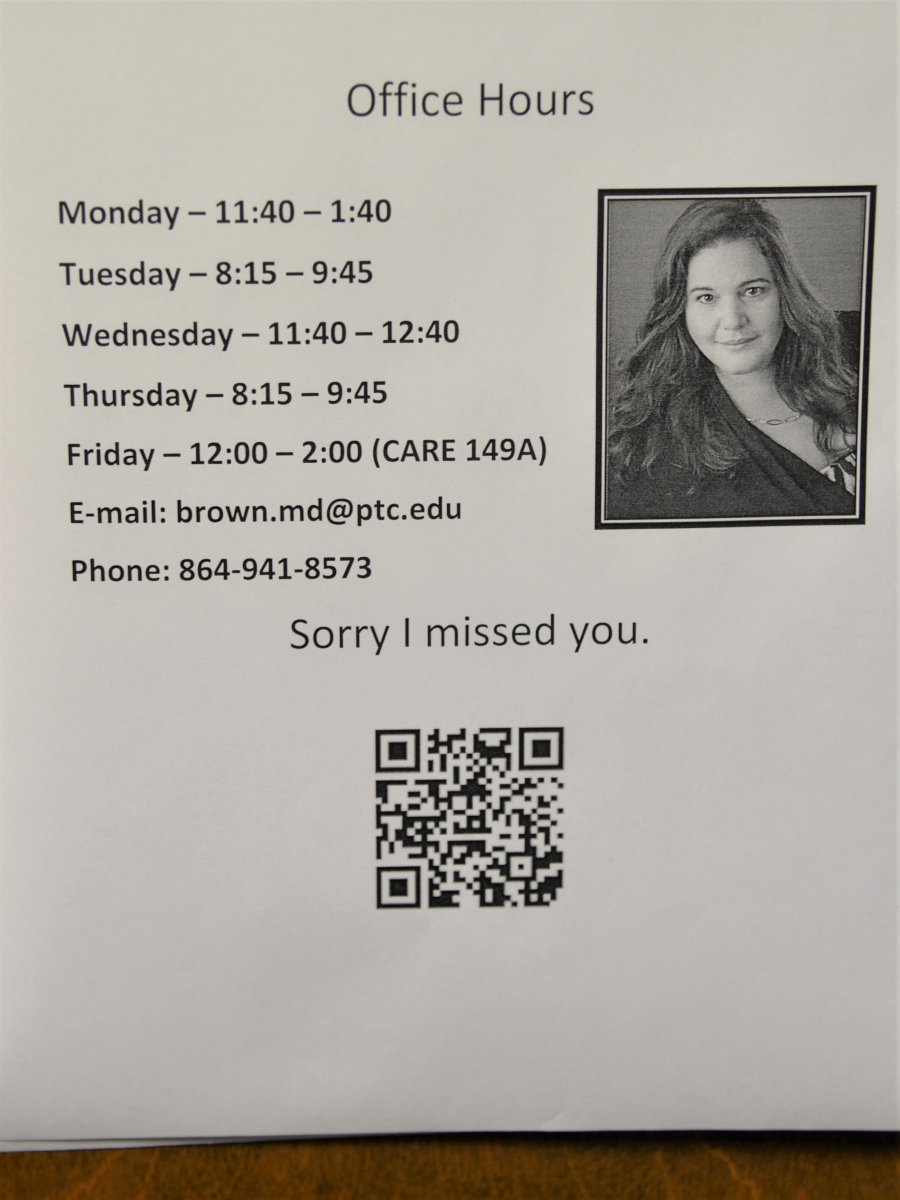Instructor’s Cunning Methods Use Technology to Buoy Student Interest and Creativity
Some might suggest that Piedmont Technical College Psychology Instructor Meredith Brown bribes her students in exchange for their class participation. They would be wrong. It’s actually similar to a psychological method called operant conditioning, which is used to stimulate desired behaviors using rewards and punishments. Her students study it as part of the curriculum, and it’s also an effective way to motivate them.
“At a recent conference I attended, a session on burnout, they recommended getting students out of the classroom to engage them,” Brown explained “You need to figure out ways to get information into them.”
 It’s pretty common knowledge that Generation Z and millennials are powerfully attached to their digital devices. Giving them permission to use them in class is a powerful reward, so Brown creatively incorporates digital tasks into her assignments. For example, long before the COVID-19 crisis compelled many educational institutions to transition into a virtual learning environment, Brown already had established a culture of flexible, remote technology with her students.
It’s pretty common knowledge that Generation Z and millennials are powerfully attached to their digital devices. Giving them permission to use them in class is a powerful reward, so Brown creatively incorporates digital tasks into her assignments. For example, long before the COVID-19 crisis compelled many educational institutions to transition into a virtual learning environment, Brown already had established a culture of flexible, remote technology with her students.
“I like technology. I use virtual classroom and WebEx all the time. I basically broadcast my class online,” she explained. “I have a YouTube channel where I post videos and share links with the entire class.” She even makes video tutorials using her phone and posts them to YouTube.
Brown’s progressive methods have caught notice in a big way. Her peers at PTC this spring selected her to receive the college’s annual Visionary Award. They went a step further by nominating her for the National Institute for Staff and Organizational Development (NISOD) Excellence Award. NISOD recently announced Brown’s selection for the honor.
“Meredith has raised the bar with the implementation and utilization of new ideas, new technologies and, above all, her caring attitude to all of her students,” PTC Science Department Head Dr. David Henry said in his nomination of Brown. “… In an effort to actively engage students, she was one of the first to implement the use of avatars among other new interactive tools to the enjoyment of students.”
Henry also noted that Brown frequently conducts training sessions for other faculty members so they, too, can best utilize various techniques to connect with students.
It’s not uncommon for Brown to send her students out of the classroom with an assignment to create a video to demonstrate the principles of, say, operant conditioning.
“My students recorded video role-plays to illustrate what operant conditioning is,” Brown said. “The videos came out really great. They were very creative. They love videos. We watch and discuss them together in class.”
A PTC alumna herself, Brown remembers well the challenges students face, especially when it comes to purchasing textbooks and other materials. Over the years, she has become one of the college’s leading advocates for Open Educational Resources (OER), which are openly licensed text, media, and other digital materials used to support various academic courses that are free, usually online. “Meredith was one of the first faculty members here at PTC to develop a course solely based on an open source text,” Henry said. “The time she invested in this effort has paid for itself many times over to the benefit of students,” who have saved thousands of dollars in materials costs.
“I either create everything or find OER. There is no material cost in my class,” Brown said. “The textbook is online. … It’s completely paperless.”
 Brown has always considered her “office hours” to be “student hours,” and she goes the extra mile to accommodate access at any hour of the day. If she is not in her office, students still can reach her by scanning a QR code posted on her office door, which launches a video on their phone of her giving instructions on how to connect.
Brown has always considered her “office hours” to be “student hours,” and she goes the extra mile to accommodate access at any hour of the day. If she is not in her office, students still can reach her by scanning a QR code posted on her office door, which launches a video on their phone of her giving instructions on how to connect.
Moving forward, Brown will continue piloting new tools and introducing them into her curriculum.
“Currently, I am investigating new interactive gaming technology in my virtual classroom,” she wrote in an essay supporting her NISOD nomination. “I believe that education should be entertaining, and students should look forward to attending class because they understand the value of the material and see the passion in the instructor.”
Even though our campus buildings are temporarily closed, our admissions counselors are available to assist with summer registration. You can reach them by phone at (864) 941-8369 or via email at [email protected] to learn more. If you call and have to leave a message, please do so, and someone will return your call promptly.
PHOTO: Meredith Brown